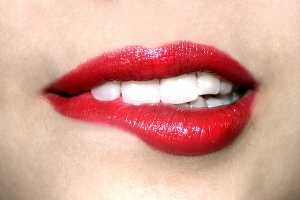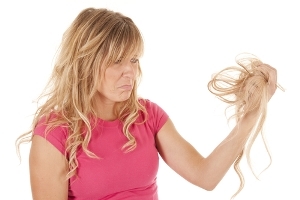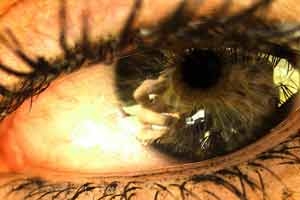How to Stop Biting Your Nails without Painting Them with Poison
5 tips you can use now to stop chomping on your precious cuticles
 The nail biting habit can be broken with the help of hypnosis.
The nail biting habit can be broken with the help of hypnosis.Ray wasn't interested in learning how hypnosis could help lift depression or phobias. He didn't care that hypnosis can be induced through normal conversation or allow people to have major pain-free operations without anaesthetic. He didn't want any of that. No, Ray's sole purpose in attending our hypnosis training workshop - his focal fascination - was to discover how to stop biting his fingernails.
I saw his cuticles had been randomly hacked, having the ugly mangy look of a neglected mutt in a town no one stops in. Jagged edges, exposed raw skin, even whole bits of nail gone; no wonder he wanted to stop chewing his nails yesterday.
He honed in during the first break: "I hate them," he admitted. "Not just the look, but the feel as well."
It was a weekend course and by the Sunday evening he had stopped biting his nails completely. But how?
More of Ray in a moment. If you want to stop biting your nails, then use the following tips and look forward to the satisfaction of seeing fresh, healthy, strong, and attractive nails in place of the old cuticle destruction you may have gotten used to.
1) What sets you a-nibbling?
Uncontrolled nail biting - that horrible soreness and knowing it looks pretty awful - can be exasperating, but there are things you can do. First off, become aware of what triggers the nail biting. Is it boredom, stress, tiredness, anger, loneliness, hunger? Once you become familiar with what triggers this piece of 'self-cannibalism' (as Ray dramatically called it), then you have a chance to 'mindfully' prepare for it and consciously do something else instead.
For example, one man spotted that he always seemed to bite his nails after his evening meal. He started a new habit of putting on washing-up gloves and washing the dinner dishes immediately after eating. By the time he'd cleaned up, he had cleaner plates (and nice un-interfered with nails, too) and the urge had passed.
2) Save the nail (one at a time)
Your nails can feel like an endangered species. Ray's nails looked to me like they'd died out. But sustainable growth is possible even if you've had a lifetime of demolishing them.
Nail biting, like any habit, needs to be broken down bit by bit (mm, maybe not the best phrase; but you know what I mean).
Choose one nail a day to leave unmolested by your canines. Whatever you do, don't bite into that one (you can still abuse the others).
Select a nail that is already battered, bruised, and chewed like a ruined castle. Only this ruin will start to resurrect. After a week of leaving that nail to heal, progress onto another nail (as well as - not instead of - the first nail). Now you have two 'no-go chew areas', but can chew away at the others. After another week, select one other nail to join the first two on their 'rejuvenation program' -you can start to find that you prefer preservation to destruction in this way.
3) Chomping at the bit to relax?
Nail biters often chew away at their own bodies when what they really want to do is...relax. We all need to rest, and not just when we sleep at night. Find 20 minutes in your day (after lunch, mid-morning, or afternoon) when you can sit or lie down, close your eyes, take some deep breaths, and unwind. Let your mind go where it will. Like a dog on a lead, it can wander, but you can direct it also. If you can listen to some relaxation audio, all the better; because when you find really effective ways to deal with stress then often the old ineffective ways (like nail biting) just fall by the wayside.
4) Learn to love your nails
People who did but no longer do, 'ex-biters' let's call them, say how wonderful it is to be able, at last, to take pride in their nails. Not to have to worry about how they look to others. Make a special effort to cut and shape them, even giving them manicures and using protective varnish. After all, when your house is done up, you feel much less like trashing it.
5) Use the power of your mind to nail the problem
I specialize in hypnosis which I've found very effective for treating nail biting.
I needed a demonstration subject for the Sunday afternoon; someone who needed to break a bad habit. Mm who would be suitable? No question really. Ray sat himself down in front of me like an eager speed dater hoping to get hitched.
"It's my nails," he started. But we all knew it was his nails; he'd been oft biting them during the workshop. And besides, he'd told everyone.
We used a simple technique called 'scrambling' (because it 'scrambles' bad habits). I asked him about nail biting. How he did it. What the steps were to the habit. At first he drew a blank, but I persisted.
"How do you know when you're about to do it?"
"Well, I just find my nail in my mouth."
Okay, step number one: Find nail in mouth.
"What happens next?"
"Well, often I'm feeling a little anxious, so I'll start chewing. But then I wrestle with myself and take it out again. Then I will either get distracted and stop biting or I'll bite it down until there's nothing left to bite on."
"What happens to the ripped nail in your mouth?" I asked.
He looked a little disgusted. "Well, I'll spit it out, usually!" he replied.
Now we had the steps. I got him to close his eyes and get the feeling of each step in turn. Opening and closing his eyes alternately. Then I started to put the steps in a different order; for example, asking him to get the feeling of finding his nail in his mouth then going to the last step of spitting out the nail then going to the stage of wrestling with himself and so forth. We put in other steps as we scrambled the pattern up.
He hypnotically saw his fingers six months in the future as if he hadn't bitten them for that long.
We accessed the feeling of being relaxed on his boat (a time when he never bit his nails). By the end of the demonstration, the habit had been so 'confused', so 're-arranged', that it was no longer there.
Six months later, Ray attended a more advanced course. His nails looked perfect. And this time he really did want to learn about hypnosis.





